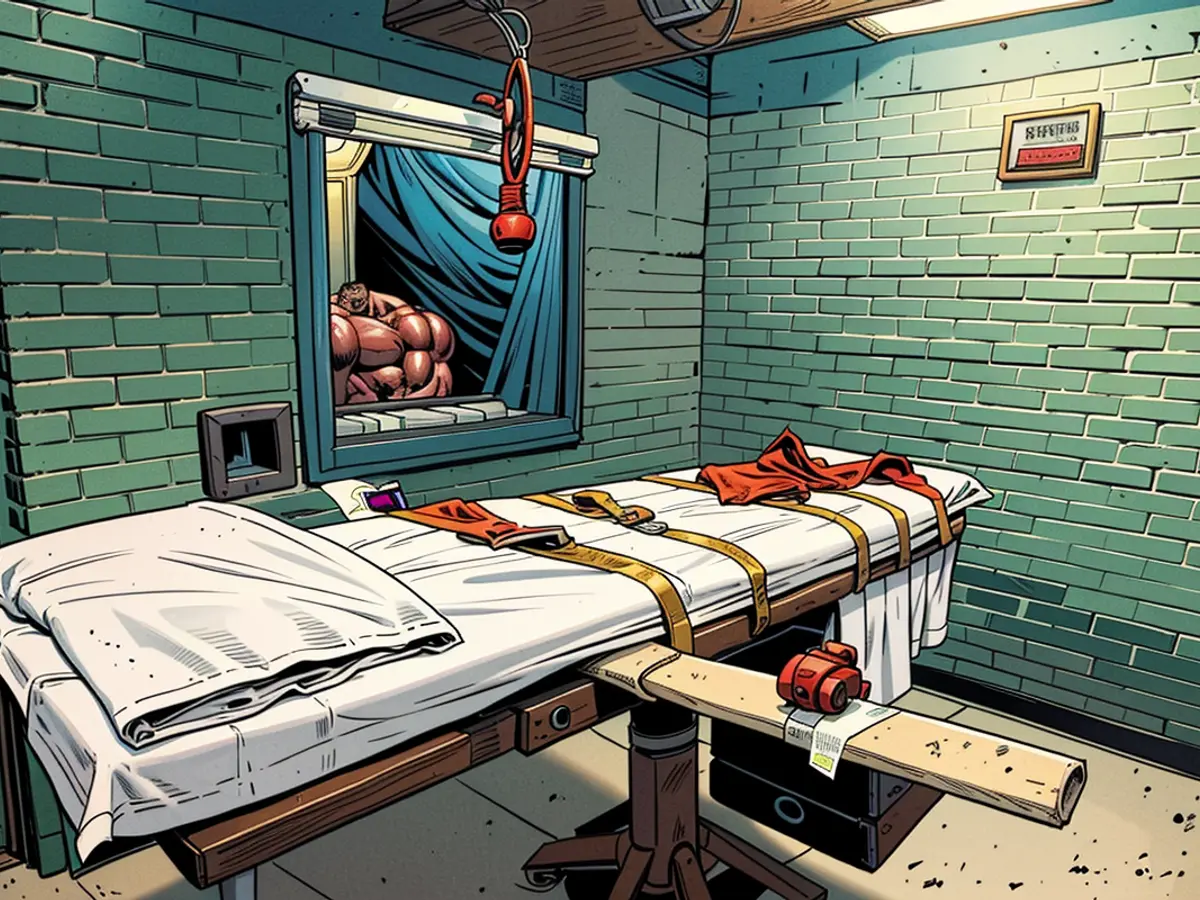Texas parole panel rejects mercy for Ramiro Gonzales, set for execution this week over 2001 homicide.
Gonzales, aged 41, requested leniency from the Board of Pardons and Paroles to decrease his sentence for the 2001 murder and sexual assault of the 18-year-old Bridget Townsend. This would enable GOP Governor Greg Abbott to give him a lighter sentence, such as life imprisonment without parole. Gonzales and his legal team emphasized his troubled childhood and his religious transformation as reasons for mercy, stating in the petition.
The board unanimously voted against adding clemency or a 180-day reprieve to his case, leaving Abbott with the legal limitation of granting only a one-time 30-day reprieve, as per the state law.
The legal team was left disappointed and disheartened by the decision, noting in a statement, "If Ramiro is executed on Wednesday, the world will be a darker place without him."
Gonzales' final hope lies with the courts: He has filed for a stay of execution, arguing that his jury's determination that he still posed a threat - a necessary factor for a capital sentence in Texas - was based on false information provided by an expert witness. His legal team claims that this testimony was incorrect as shown by Gonzales' rehabilitation and attempts to donate a kidney, which they argue invalidates his eligibility for execution, violating his Eighth and Fourteenth Amendment constitutional rights.
Meanwhile, Oklahoma plans to execute Richard Rojem this week, convicted of the 1984 kidnapping, rape, and murder of his 7-year-old stepdaughter, Layla Cummings. Like Gonzales, Rojem has also received no recommendation for clemency from the Oklahoma Pardon and Parole board. He maintains his innocence, as reported by CNN affiliate KOCO.
With the execution of Gonzales and Rojem, the United States would have executed eight and nine people this year, according to the Death Penalty Information Center, a non-profit that monitors and analyzes information about capital punishment.
In the Texas case, the Medina County Criminal District Attorney's Office did not respond to a request for comment. CNN tried to reach Townsend's family for comment.
The Murder of Bridget Townsend
One day in January 2001, Gonzales went to Townsend's boyfriend's home in search of drugs, having learned he was there via a phone call, according to a 2009 appeals court opinion. Upon answering, Townsend told Gonzales that her boyfriend was at work. Intruding upon the household, Gonzales stole money and tied Townsend's hands and feet before kidnapping her. He then drove her to a location near his family's ranch where he raped and fatally shot her.
In October 2002, while incarcerated in connection to another rape, Gonzales confessed to Townsend's murder and led authorities to her body, as stated in court records.
Gonzales was 18 when he committed the murder, the clemency petition states, describing a lifetime of drug addiction and childhood abuse that led to his criminal actions.
Gonzales' mother abused drugs and alcohol during her pregnancy, giving him up for adoption at birth. She had two other children she raised, yet never acknowledged Gonzales as her son, the petition claims. The petition also references alleged childhood sexual abuse that started at age 6.
Gonzales began using drugs in his teenage years, after the death of his aunt, causing him grief he could not overcome. The petition states, "In the years that followed, Ramiro's life spiraled out of control."
No More Danger to Society, Appeal Argues
During his time on death row, Gonzales has transformed himself into a "living testament" to the potential for rehabilitation and personal growth, believes his legal team. He has become deeply religious, has not committed any violent crimes, and has tried to atone for his crimes through acts such as kidney donation. The legal team presented this evidence in a recent appeal to the Texas Court of Criminal Appeals, arguing that Gonzales is no longer a threat to society, contradicting the finding made by his court at trial.
Lawyers for Gonzales contend that the evidence used by jurors to deem him potentially harmful was flawed: A state expert witness, during the sentencing phase of Gonzales' trial, presented that numerous pieces of data indicated sex offenders typically carry on with criminal activities, using recidivism statistics to support this claim. However, it's been discovered that this data was incorrect, as asserted by Gonzales' appeal. The expert confessed to The Marshall Project in 2021 that he'd never altered his stance in a capital case prior to this one, labeling this exception as "rare, not typical."
When the Court of Criminal Appeals paused Gonzales' execution, it sent his case back to the original court to reconsider the expert's testimony and its impact on the jury's verdict. Gonzales' appeal claims the state petitioned for the request to be rejected, and the lower court concurred without conducting a hearing. The appeals court, in turn, denied the requested relief in June 2023.

Read also:
Despite the Texas parole panel's decision, the legal team for Ramiro Gonzales, set for execution this week over the 2001 homicide and sexual assault of Bridget Townsend, continues to argue that Gonzales has transformed himself while on death row, becoming deeply religious, committing no violent crimes, and attempting to atone for his actions through acts like kidney donation.
In their efforts to override the parole panel's decision and prevent Gonzales' execution, the legal team has highlighted these changes and argued that Gonzales is no longer a danger to society.








